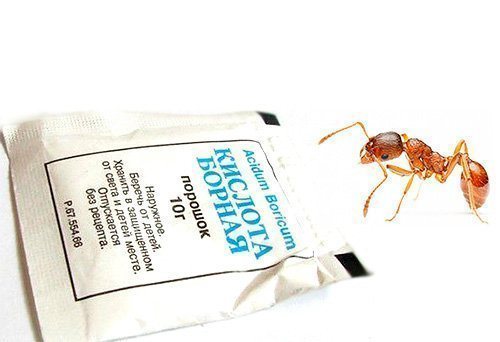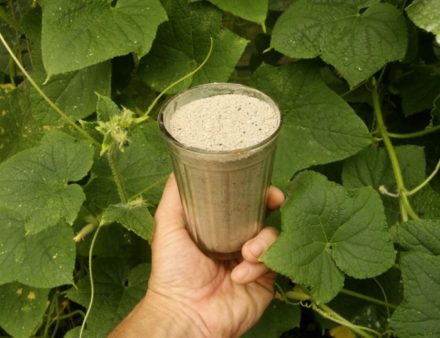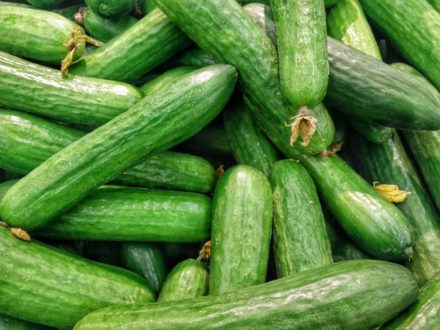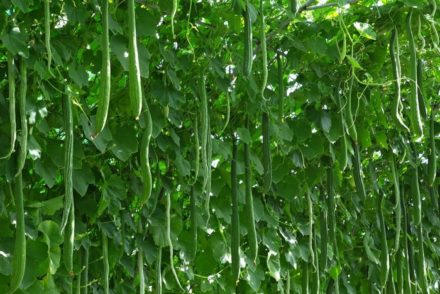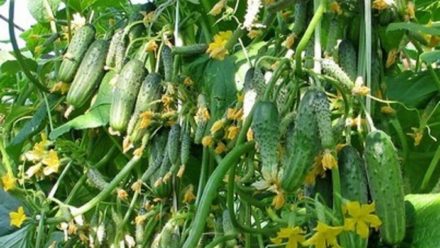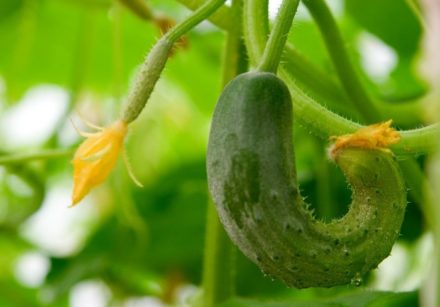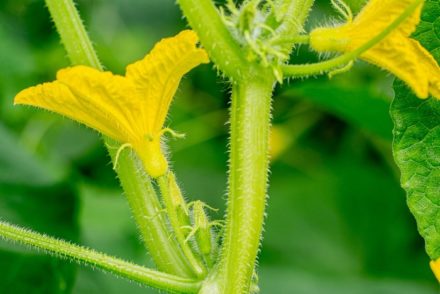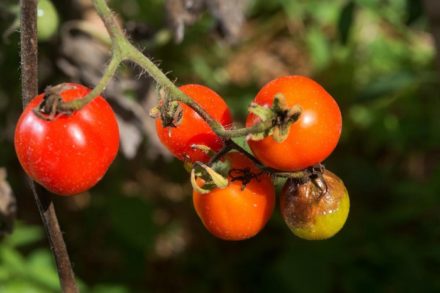Gardeners often use boric acid as a stimulator of fruit formation. Cucumbers respond gratefully to such feeding, increasing productivity by 25-30%. The drug is used in the form of a solution that is sprayed on the leaves. Stimulating treatment is carried out at the moments of budding, mass flowering and fruit formation. Additional components in the composition help to enhance the effect of fertilizing.
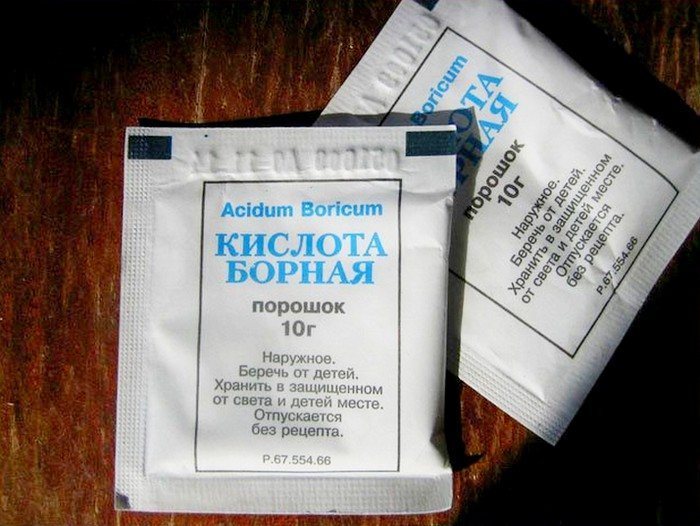
Feeding recipes with the addition of various components
Boric acid for feeding can be purchased at a pharmacy or gardening store. This substance is a white crystalline powder, difficult to dissolve in water.
First, hydrogen borate is diluted in a small volume of liquid (200-300 ml). The water must be hot. Then the resulting concentrate is diluted with lukewarm water to the required volume. The simplest recipe suggests using only boric acid crystals (0.5 tsp) and water (10 l). In some cases, additional additives are added to the solution.
With chlorella suspension
Advanced gardeners have long been using a chlorella suspension in caring for crops. This product is a universal biostimulant of organic origin. A suspension is produced from living unicellular algae.Its use helps speed up the ripening period of the crop, prolongs the fruiting period, improves the marketability of fruits and increases their nutritional value. If you combine the application of chlorella and boric acid, you get a double stimulating effect.
To prepare the solution you will need:
- 1/2 tsp. boric acid;
- 1 glass of chlorella suspension;
- 10 liters of warm water.
First, boric acid is diluted in a small amount of well-heated water. The resulting concentrate is poured into a bucket with the remaining water, and a suspension of chlorella is added here. The solution is used for spraying cucumbers in the active flowering phase and at the beginning of fruiting. The remaining solution can be poured under the bushes. Chlorella stimulates the growth of beneficial microflora in the soil.
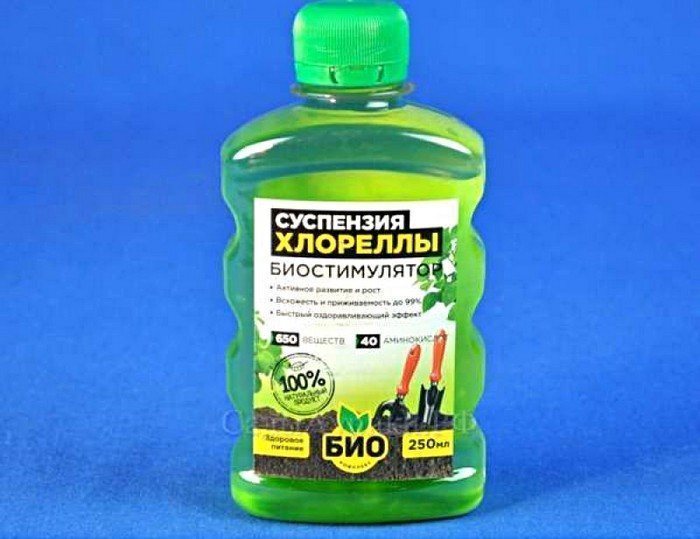
With potassium permanganate and honey
Cucumbers planted in open ground are not always successfully pollinated by bees. Bee-pollinated varieties can bloom, but not produce ovaries. This is a clear sign that the pollinators haven't done their job. To attract bees, cucumbers are sprayed with a solution of boric acid to which honey has been added. Preparation of the composition:
- Dilute 5 g of boric acid in 1 liter of hot water.
- Pour the concentrate into a bucket with 9 liters of water at room temperature.
- Add 1/4 tsp. potassium permanganate crystals;
- Add 100 g of honey to the solution and mix thoroughly.
The smell of honey will attract bees. The quality of pollination directly affects the volume of the harvest. If there is no honey, you can use regular sugar in the same amount. Potassium permanganate in the composition plays the role of a disinfectant component. The solution has a detrimental effect on fungal spores and pathogenic bacteria.The bushes are sprayed with the composition during flowering and at the beginning of fruiting so that the ovary does not fall off.
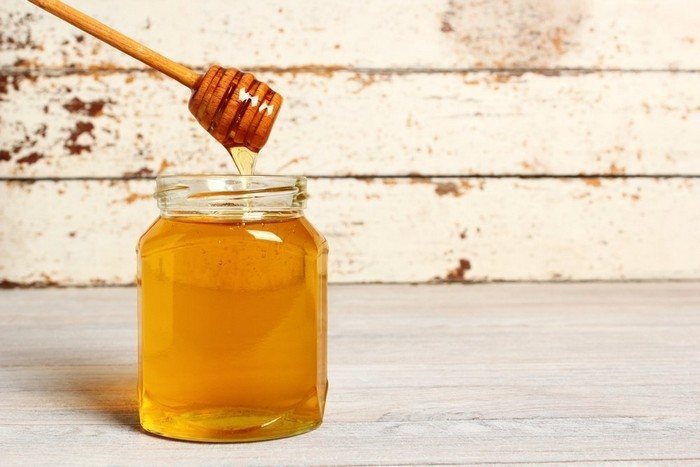
With ammonia and potassium permanganate
In the active flowering phase, the bushes devote all their strength to this process and may partially lose their protective functions. Weakened immunity deprives cucumbers of the ability to resist harmful insects. Aphids are one of the terrible garden pests that can completely destroy a crop in a short time. Spraying with boric acid can be combined with treatment against parasites.
In this case, the composition is prepared from the following components:
- 1/2 tsp. boric acid;
- 2 tbsp. l. ammonia;
- several crystals of potassium permanganate;
- 10 liters of water.
A small amount of water taken from the total volume is heated well and mixed with boric acid until the crystals are completely dissolved. Then the concentrated composition is poured into a bucket of water. Ammonia and several crystals of potassium permanganate are also added here.
The solution is thoroughly mixed, poured into a sprayer and the cucumbers are immediately treated with it. The effect of the composition is protection against fungus, aphids and other insects, weak nitrogen fertilizing. Spraying is carried out in dry, cloudy weather. If it rains soon, the treatment will need to be repeated.
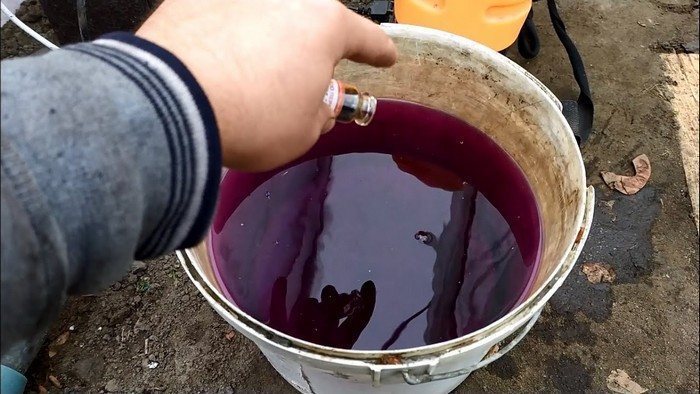
Boric acid does not cause any harm to plants if the dosage is adhered to. The simulator, on the contrary, is beneficial. To prevent burns on cucumber leaves, spraying is carried out in the morning or evening hours. On a cloudy day, processing time does not matter.


